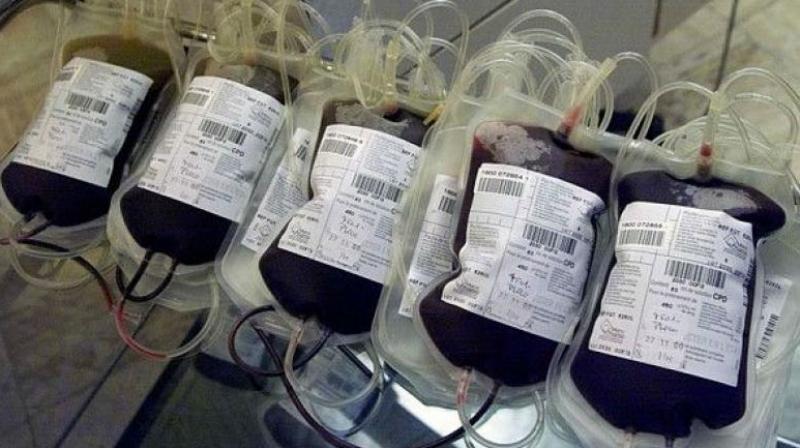10 per cent patients get HIV/AIDS from blood donors in window period'
The AIDS Society states that only those who are enrolled into their programme are followed up and tracked by them.

Hyderabad: There has been a 10 per cent increase in the HIV/AIDS cases due to transfusion of infected blood according to data released by the National Aids Control Organisation. The number of such cases rose from 1,445 in 2015 to 1,560 this year so far.
The National Aids Control Organisation claims that there has been a drastic reduction in HIV/AIDS cases due to other factors in the last five years.
A senior official of the TS Aids Society said HIV infection through blood transfusions spreads because many youth donate blood in the 'window period' when the virus is not visible during tests.
“Some of them are in the window period of infection while donating blood. The blood bank tests for Hepatitis B, C and HIV are carried out. In the window period the infection can’t be identified. Hence the transfusion leads to the spread of the disease."
The AIDS Society states that only those who are enrolled into their programme are followed up and tracked by them. Those who are opting for care in private institutions are never traced as the data is not submitted to them. At the same time, blood banks state that they require more high-end equipment to identify these viruses in the window period.
A senior member of the Institute of Preventive Medicine said, “There is new technology in terms of testing which is available where the identification process is faster. This equipment are available with a few blood banks in the city. But by and large the existing tests are being carried out in the blood banks and only certified blood is given to recipients.”
But the data speaks differently as it is found that one among every 100 HIV patients could be a victim of infected blood transfusion which means that the chances of an HIV patient in India having contracted the virus via blood transfusion is high.
This requires strengthening of the drug control authority who must carry out frequent checks and also ensure that testing is carried out regularly, according to an official.
